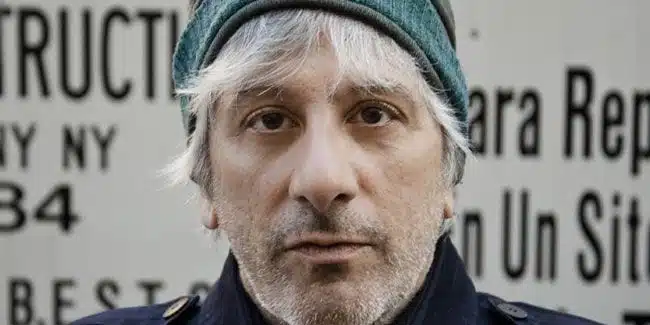
When I first started listening to Sonic Youth, I always pegged Lee Ranaldo as the “weird” songwriter of the group. His SY songs were always the most jarring ones on their albums, often a nice breather from the back-and-forth between Thurston Moore and Kim Gordon. Therefore, it was a bit of a surprise to me when Ranaldo made the first new post-Sonic Youth record of the three with Between the Times & The Tides: Here was the weirdo behind “Pipeline/Kill Time” and “Skip Tracer” playing fairly conventional guitar rock as his first real statement as a solo artist. The sense of impending doom that always laced Ranaldo’s best songs was there, but the clever noise artist was gone, replaced by a guy whose most obvious influences could probably be heard on classic rock radio. Of course, those familiar with the Sonic Youth backstory will know that Ranaldo was an avid Deadhead in his formative years, so Between the Times and its follow-up Last Night on Earth aren’t wholly unpredictable moves in that context. Still, as with its predecessor, Last Night on Earth finds a great songwriter capable of much more retreating to comfortable surroundings.
After the relative modesty of Between the Times, Ranaldo opted for a much bigger sounding record with Last Night on Earth, recruiting a crack band including former Sonic Youth bandmate Steve Shelley along with Alan Licht and Tim Lüntzel with the intent of giving this collection of songs a more expansive feel. The band is more than up to the task, making Last Night on Earth a far more invigorating listen than its predecessor. Ranaldo also seems far more committed to making a classic-sounding record this time around, as he and Licht coax out guitar tones that could easily be attributed to everyone from Bob Weir to Jimmy Page. When it works, as it does on the epic opener “Lecce, Leaving”, the boundless enthusiasm of the musicians is infectious.
However, Last Night on Earth too often finds Ranaldo relying on familiar arrangements as a crutch more than a creative tool. At points, the album sounds more like a tribute album than a collection of original songs, the familiar trappings becoming staler as the album wears on. The pleasant chord changes of “Home Chds”, for example, chug along until you realize that they bear a striking resemblance to America, of all bands. At this point, the song’s second skronking guitar solo is welcome. That brings about another problem with the album, one that’s pretty much inevitable when you look at the project on paper. Last Night on Earth is considerably drawn out for no reason beyond the self-indulgence of the musicians involved. One can only hear so many songs wrapped up with a coda featuring blazing fretwork before it becomes painfully clear that the guitarist is enjoying himself far more than the listener. Yes, I’m well aware that Lee Ranaldo’s previous band used to use several minutes of feedback as a regular component of their songwriting, but that was at least done with a sense of anarchy, a manifestation of their melding of punk’s confrontation and the archness of performance art. Here, Ranaldo’s compositions give off the impression that he likes to play the guitar.
Fortunately, Ranaldo can play the guitar quite well, and Last Night on Earth is a well-performed piece of music from a technical standpoint. There are certainly worse ways for Lee Ranaldo to while away his post-Sonic Youth days, so seeing him playing in a Grateful Dead-inspired jam band isn’t the worst thing in the world. Still, one can’t help but hope that a songwriter of Ranaldo’s stature tries to take on something a little more challenging next time.

